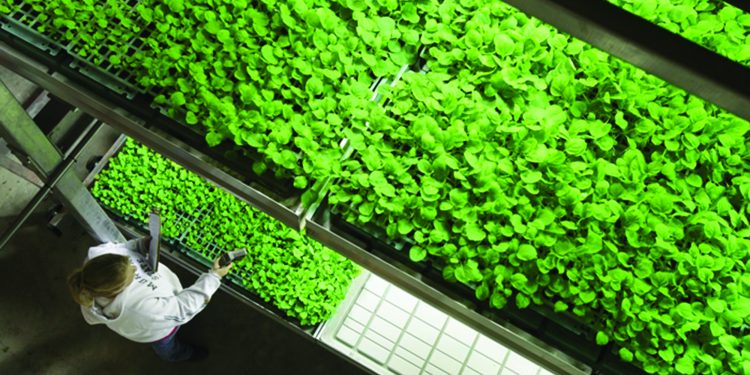For the world’s population, and those in West Africa in particular, the Ebola virus represents a serious threat to human health. The latest information from the World Health Organization shows at least 1,848 people have died in the current Ebola outbreak in West Africa, a figure that now exceeds the total number of recorded deaths previously caused by Ebola since its discovery in 1976.
Accounting for all outbreaks up until the current epidemic, WHO data shows there have been over 2,800 deaths from 5,800 cases of Ebola. The largest previous outbreak was in Uganda in 2000, where 425 people were infected and 224 died. WHO counts 25 previous outbreaks, including the outbreak in 1976 when scientists first became aware of the virus.
Still, despite the staggering death toll in the wake of the Ebola outbreak, there is hope for a cure. There are also ways we can help those suffering, such as donating money to feed people in the areas most devastated by the virus. With this feature, Owensboro Living explains how these sources of hope and help are rooted right here in our city.
[tw-divider]Hope for a Cure[/tw-divider]
With the world focused on the plight of those infected with Ebola in West Africa, one company in Owensboro is receiving nearly as much attention for its involvement in the effort to eradicate the virus. Situated on 23 acres in Owensboro, Kentucky Bioprocessing’s manufacturing and biomass facilities are a vital part of a concerted effort to combat the viral threat.
KBP, who was purchased by Reynolds American, Inc. in January 2014, conducts contract research and development related to protein expression and extraction from the tobacco plant for a variety of clients, including government agencies. One such contract is with Mapp Biopharmaceutical, which retained KBP to develop a process to manufacture a compound that is designed to be a post-exposure treatment for Ebola.
KBP’s expertise lies in the use of plant-based processes to make compounds or proteins, rather than the traditional use of animal-based processes used by most pharmaceutical companies. The plant-based system offers some advantages over other systems – it is comparatively quick and its yields may be more effective than those of other systems.
In simple terms, substances can be introduced into the tobacco plant, which acts like a photocopier, replicating the proteins within the plant cells. The plants are then harvested, the proteins are extracted and purified and used to create the biopharmaceutical product the client is looking to develop.
According to Barry Bratcher, KBP’s Chief Operating Officer, “We believe that KBP’s 32,000-square-foot manufacturing facility and large plant-growing facilities are the largest of their kind in the world. We also employ true experts in tobacco agronomy and are so proud of the extraordinary work they have undertaken in the last year.”
With the work of organizations like Owensboro’s Kentucky Bioprocessing, early results provide hope that producing a cure is possible. The first patients to receive ZMapp, Dr. Kent Brantley and Nancy Writebol, two American health workers in Liberia, were transported to the United States, and released from the hospital on August 21.
[tw-divider]Helping the Suffering[/tw-divider]
As much as the virus directly impacts those infected, there is also massive collateral damage to the families of the victims. In particular, the spread of the virus has created a great need for food assistance in countries like Liberia, where over 3,000 people have been infected, according to the CDC, and where the imposition of a state of emergency makes it difficult to access basic resources. Recognizing this need, Church for All, a nondenominational Christian church in Owensboro, has spearheaded a campaign called Ebola Food Assistance. This ministry exists as part of the church’s Mission Liberia outreach, and is particularly near and dear to the heart of Rev. M. Garswa Matally, the church’s pastor. Matally, also known as Brother G, is a native of Liberia, who moved to the United States in the wake of the Liberian Civil War. He explained that because of the lack of food imports since the outbreak of the virus (Liberia imports 90% of its staple food, rice), hunger and malnourishment are becoming as much of a threat to the Liberian people as the virus itself.
To gain a better understanding of the situation in West Africa, we asked Brother G about the conditions in Liberia that make the Ebola virus particularly dangerous for its people. In addition to the major issue of lack of adequate healthcare, Brother G adds that Liberian culture itself also adds an element of difficulty in the fight against the virus. “Perhaps the real threat of Ebola to Liberians is that the way the virus spreads is diametrically opposed to everything about Liberian culture. Ebola spreads by bodily contact and through bodily fluids like sweat, tears, saliva, etc. Liberians are raised to live in close contacts. Several families may cramp in one house, sometimes as many as 30 persons in the same house; it is common for a family of five to sleep in one bedroom. When Liberians meet they are eager to shake hands and embrace. All these cultural ways play right into the hands of Ebola, and that’s why entire families of five, ten or fifteen are dying from the disease.”
So what can Owensboroans do to help? Since 2012, Brother G and others from Church for All have taken annual mission trips to Liberia, and have also planted several churches in the country. Those churches have begun serving as distribution centers for the food purchased with American donations. Thus far, with donations from within the church, and from the community at large, Church for All has been able to send $1,261 to Liberia, with another $1,500 scheduled to be sent in October. To donate to Mission Liberia’s Ebola Food Assistance, contact Church for All at (270)688-8232, or at [email protected].










